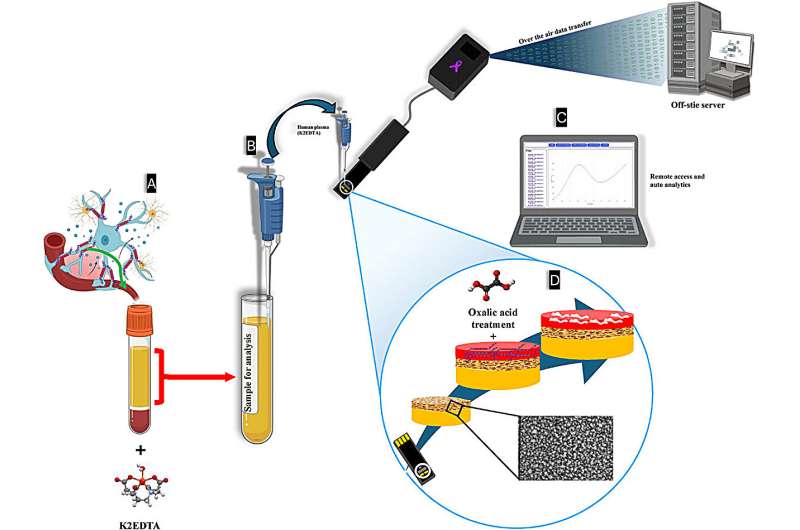Two studies, published in Advanced Healthcare Materials and ACS Sensors, show that simple, handheld devices incorporating molecularly imprinted polymer-based biosensors and powered by artificial intelligence (AI)—can measure key biomarkers of Alzheimer’s disease in the blood with accuracy similar to expensive hospital-based tests, but at a fraction of the cost.
Alzheimer’s disease affects more than 55 million people worldwide and is the most common form of dementia. Current tests, such as those used in specialist hospital labs, are accurate but expensive, complex, and not widely available. This limits early diagnosis—especially in local clinics, GP surgeries, and in low- and middle-income countries where resources are limited.

